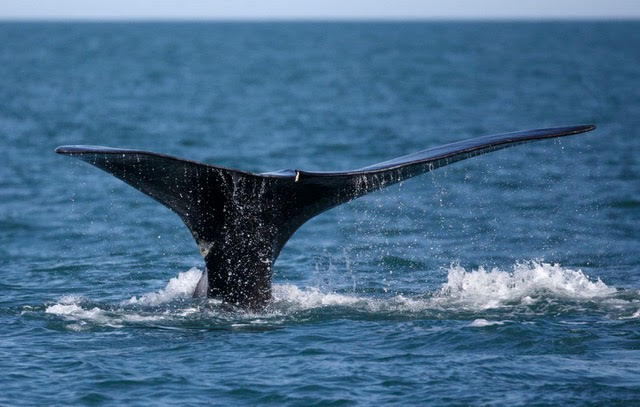The Trump administration is preparing to take an important step toward future oil and natural gas drilling off the Atlantic shore, approving five requests from companies to conduct deafening seismic tests that could kill tens of thousands of dolphins, whales and other marine animals.
The planned Friday announcement by the National Marine Fisheries Service, a division of the Commerce Department, to issue “incidental take” permits allowing companies to harm wildlife is likely to further antagonize a dozen governors in states along the Eastern Seaboard who strongly oppose the administration’s proposal to expand federal oil and gas leases to the Atlantic. Federal leases could lead to exploratory drilling for the first time in more than a half-century.
In addition to harming sea life, acoustic tests — in which boats tugging rods pressurized for sound emit jet engine-like booms 10 to 12 seconds apart for days and sometimes months — can disrupt thriving commercial fisheries. Governors, state lawmakers and attorneys general along the Atlantic coast say drilling threatens beach tourism that has flourished on the coast in the absence of oil production.
Seismic testing maps the ocean floor and estimates the whereabouts of oil and gas, but only exploratory drilling can confirm their presence. The Deepwater Horizon oil spill that soiled the Gulf of Mexico resulted from an exploratory drill. Another gulf disaster that looms almost as large has spewed oil for more than 14 years. The Taylor Energy Co. spill of up to an estimated 700 barrels a day started when a hurricane ripped up production wells, and could continue for the rest of the century, according to the Interior Department.
The fisheries service announcement comes just a week after the Trump administration released a new report by the U.S. Geological Survey showing that excavating and burning fossil fuels from federal land comprised nearly a fourth of all carbon dioxide emissions in the United States over a decade ending in 2014.
On the Friday after Thanksgiving, the administration published a much larger report by 13 federal agencies projecting the severe economic costs of climate change as coastal flooding and wildfires worsen, and hurricanes are becoming more severe. After the administration’s critics accused it of trying to bury the report with a release on Black Friday, President Trump dismissed it out of hand.
“One of the problems that a lot of people like myself, we have very high levels of intelligence but we’re not necessarily such believers,” Trump said during a freewheeling 20-minute interview with Washington Post reporters.
Rep. Raúl M. Grijalva (D-Ariz.), the ranking member of the House Natural Resources Committee who will probably take over as chair in the next Congress, blasted the administration’s decision to permit acoustic testing as “an alarming sign of [its] indifference to the fate of coastal communities and marine life, including the endangered north Atlantic right whale.”
He bemoaned the timing of the announcement shortly after the climate report’s release, saying, “there is nothing this administration won’t do for the fossil fuel industry, including destroying local economies and ruining endangered species habitats.”…
Washington Post, 30 novembre / DarrylFears
photo : Baleine franche d’Atlantique nord (appelée aussi baleine noire de l’Atlantique ou baleine de Biscaye) / baie de Cape Cod au large de Plymouth / © Michael Dwyer/AFP

